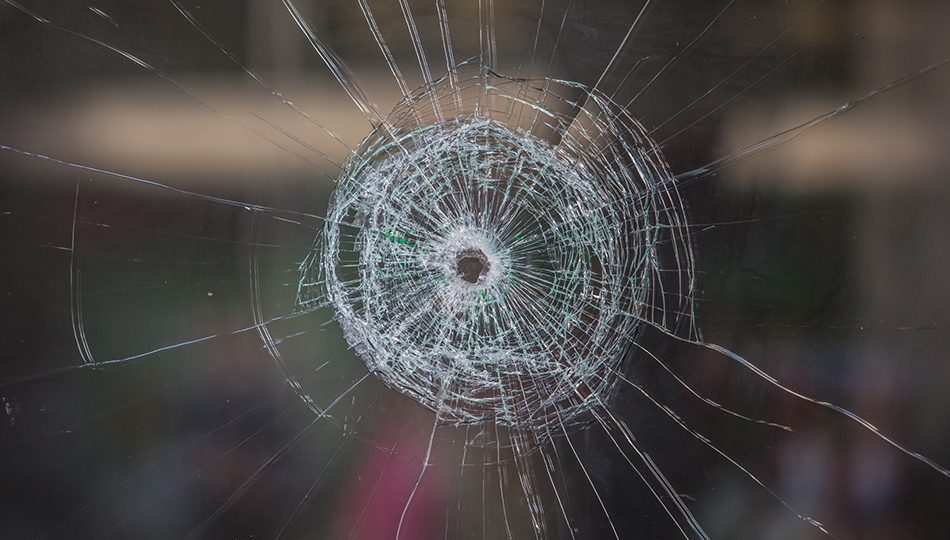
Like carrying a gun, carrying a knife for protection as part of your self-defense plan comes with knowing and understanding the law. In the case of carrying onto the school property and in a school building, knowing state law as well as the school handbook is critically important. As a parent, when you are carrying a knife and you bring your kid to school, here’s what you should know.
The Size of The Knife Matters…
As the saying goes, “everything is bigger in Texas,” but in the case of knives, smaller size and your location matter greatly. Specifically, five and one-half inches is the size that matters. Why? Essentially, there are two classifications for knives under Texas law.
First, non-location restricted knives, which is a knife with a blade length of five and one-half inches or less (from tip to guard). The possession of this “small” size knife generally does not carry a criminal penalty under Texas law and is not defined in the penal code.
Second, we have a “location-restricted knife,” which is a knife with a blade over five and one-half inches and involves various places where this knife is strictly prohibited. Tex. Penal Code § 46.01(6). With this larger size knife, location really matters. The prohibited places include a school, educational institution, and any grounds or building on which an activity sponsored by a school or educational institution is being conducted, without written authorization. Further, it does not matter whether the school or educational institution is public or private. But pay attention, there are many other restricted places where this type of knife is prohibited, for example, in the secured area of an airport, hospitals, amusement parks, and professional sporting events.
Be mindful if you are carrying one of these “big” knives in the wrong places, the penalties are extremely harsh. For example, unlawful possession of a knife with a blade over five and one-half inches in a school (a restricted location) carries a penalty of up to 10 years in prison and up to a $10,000 fine. Tex. Penal Code § 46.03(a)(1). All other restricted locations are a Class C Misdemeanor punishable by a fine only, up to $500.
Enjoying this content? Find out how you can get more essential updates and self-defense information just like this sent straight to your inbox.
Are You A Parent, Teacher, or Student?
In a school setting, who you are also matters when carrying a knife. For parents, having a non-location restricted knife on school property or the school building could be a violation of the school’s code of conduct. Further, if you became a party to one of those “parental participation agreements,” carrying a knife, among other things, could be a violation. In these cases, you could be banned from participating as a volunteer or from attending extra-curricular activities. Beyond the ridicule you may then receive from other parents, a parent may be charged with criminal trespass for entering into a place where you received notice that entry (with a knife) was “forbidden,” and other severe actions that school may deem “necessary.” Yes, it is tough being a parent!
For teachers, you should be mindful that carrying even a small knife (five and one-half inches or less) could violate the terms of employment and be grounds for termination.
For students, the law says possession of a “big knife”—again a knife over five and one-half inches—is a crime for those persons under the age of 18 and specifically when not supervised by a parent or legal guardian, in or on premises under their control, or in their motor vehicle (or watercraft should you boat to school). Most schools’ student handbooks almost universally state that the possession of any weapon, including knives (no matter how big) or even non-deadly weapons (such as pepper spray), is a violation of “zero-tolerance” policies. While the student’s possession of a “small knife” or other weapon may not result in criminal charges, it commonly leads to suspensions, expulsions, and negative remarks on permanent records.
Location Matters…
If you were to move from your parked vehicle into the school building, you may confront metal detectors and a security check. In this situation, what if you forget to remove your knife from your person or purse and it triggers the metal detector alarm? What should you do?
If you are carrying a location restricted knife (or any other prohibited weapon such as a firearm), you may have just walked yourself into a serious felony. If possible, you should quickly make clear that it was an accident and that you did not know the item was on you. Do not make any other statement, return to your vehicle, and remove the offending knife from your person. However, if the metal detector is monitored by a police officer, an alert may constitute reasonable suspicion (or even probable cause), and subject you to search, and yes, criminal charges.
If you find yourself in this scenario, you need to speak to an attorney immediately. For other non-prohibited items such as a “small knife,” mace, or taser, police or security may turn you away from the entrance or provide you an opportunity to return the item to your vehicle.
Parents, Be Prepared…
As attorneys, we have seen many honest, accidental, and mistaken violations of carrying in prohibited locations (including schools). It is important to remember to account for every self-defense tool you may be carrying. To avoid this nightmare, thoroughly check your bags, purses, briefcases, and backpacks after they have been stored away for some time. Unfortunately, memory is not perfect—and knowledge of where that “big knife” or “small knife” was placed can fade.
If you have any questions about the laws regarding knife carry, call Texas LawShield and ask to speak to your Independent Program Attorney.
Your Protection Starts Here!
BECOME A MEMBERThe preceding should not be construed as legal advice nor the creation of an attorney-client relationship. This is not an endorsement or solicitation for any service. Your situation may be different, so please contact your attorney regarding your specific circumstances. Because the laws, judges, juries, and prosecutors vary from location to location, similar or even identical facts and circumstances to those described in this presentation may result in significantly different legal outcomes. This presentation is by no means a guarantee or promise of any particular legal outcome, positive, negative, or otherwise.





Great info!! Thanks for sharing!! I am a member of Texas & US Law Shield since March of 2020. KEEP UP THE FIGHT!!!
Post some real life knife stories on YouTube too.
Well, with covid-19, my child is doing virtual education, so it is not going to be an issue. PLUS the favorite knife i have carried in many places is the Mantis MK-F MRS Smith Fixed Karambit (MNMKF) Blade Length: 1.25” in Overall Length: 5.25” in Weight: 2.8 oz .
Does the blade length only include the sharpened edge or is it measured to the hilt?
Texas law is interpreted to the hilt, not just the sharpened part. I forget the quoted case that’s based on but there is one.